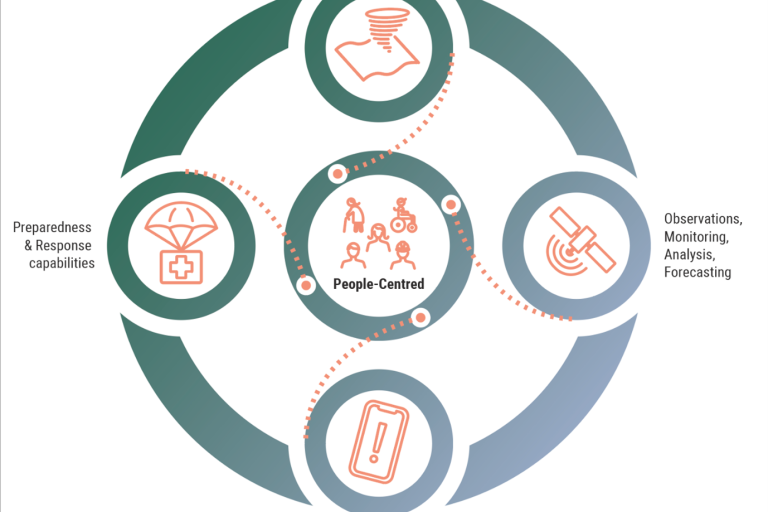New Funding to accelerate Early Warnings for All
CREWS funding is boosting progress towards achieving Early Warnings for All in vulnerable Least Developed Countries and Small Island Developing States.

The Early Warnings for All initiative aims to ensure universal preparedness for hazardous weather, water and climate events through the establishment of life-saving Early Warning Systems at regional, national and local levels by the end of 2027. Funding from the Climate Risk and Early Warnings (CREWS) initiative is boosting progress towards achieving this goal in vulnerable Least Developed Countries (LDCs) and Small Island Developing States (SIDS). Its 18-month Early Warnings for All Accelerator for LDCs and SIDS Project aims to strengthen Multi-Hazard Early Warning Systems (MHEWS) in seven countries: Comoros, Kiribati, Madagascar, Mauritius, Nepal, Solomon Islands and Tonga.
The project will be jointly implemented by the four Early Warnings for All leads: WMO, United Nations Office for Disaster Risk Reduction (UNDRR), International Telecommunications Union (ITU) and International Federation of Red Cross and Red Crescent Societies (IFRC). They will work hand-in-hand with National Disaster Management Offices (NDMOs) and the National Meteorological and Hydrological Services (NMHSs) in the seven countries.
The project will evaluate existing MHEWS capacities to identify gaps and needs and leverage ongoing initiatives and projects. It will span across the four Early Warnings for All pillar, using an inclusive, people-centred approach that embraces vulnerable communities, such as persons with disabilities and children, and harnessing local and indigenous knowledge. The project will facilitate peer-to-peer learning and knowledge sharing and help to build partnerships, accountability and transparency.
The LDCs and SIDS Project has four main expected outcomes:
- Strengthen the availability, access and use of accurate, timely and disaggregated climate and risk information for MHEWS
- Enhance the accuracy and timeliness of weather and climate-related forecasts and warnings
- Improve the quality and coverage of multi-hazard early warning communication and dissemination
- Promote early and anticipatory action for various weather and climate-related disasters and ensure response preparedness capabilities are in place; strengthen coordination of investments in MHEWS.
For the NMHSs, strengthened capacity to monitor and predict weather and climate-related events will lead to improved forecasting models, improved early warning capabilities, increased public trust, and better-informed decision-making. The project will help NDMOs to proactively prepare for and respond to potential disasters and thus minimize their impacts on communities and infrastructure. By receiving advance notice of impending natural hazards and/or extreme events, they can implement evacuation plans, deploy resources and coordinate emergency services more effective. The LDCs and SIDS Project will also work closely with public and private sector telecommunication regulators and companies via ITU and humanitarian communities via IFRC.


